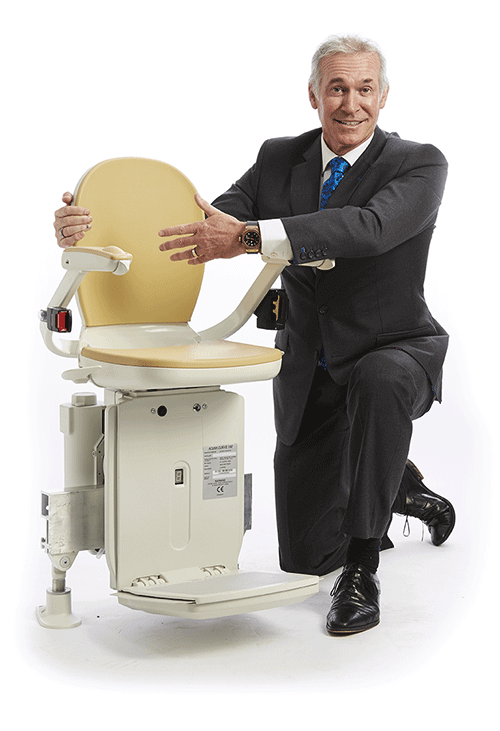Whether it's the aroma of freshly baked goodies, the sight of an illuminated Christmas tree, or the melodies of our favourite Christmas songs, the familiar senses of the holidays often spark treasured memories and feelings of nostalgia.
However, for the 55 million people worldwide who suffer from dementia, Christmas can often be a time of confusion, sadness, and anxiety.
While people with dementia may be able to remember their dearest childhood, Christmas memories, their inability to identify the unfamiliar faces at the dinner table or the sudden change of home decor can be confusing and distressing. They may ask for someone who is no longer there or wonder why the house suddenly looks so different.
Fortunately, there are measures you can take as a caregiver to ensure that both you and your loved one with dementia are able to enjoy the holidays together.
What is Dementia?
Dementia is an umbrella term for several diseases that destroy nerve cells, causing damage to the brain and typically leading to a deterioration in cognitive functioning that is beyond what is expected from the normal ageing process.
Mainly affecting older people, dementia is a syndrome that affects thinking, memory, and the ability to perform daily activities.
It is also a progressive disease, meaning that the illness will continue to get worse over time.
The most common form of dementia is caused by Alzheimer’s Disease, which makes up 60 to 70 percent of cases.
While there is no cure for dementia, a lot more action can be taken to improve the overall quality of life of both people living with dementia and those who care for them.
Signs of Dementia (Early Stages):
- memory loss
- difficulty concentrating
- finding it hard to carry out familiar daily tasks, such as getting confused over the correct change when shopping
- struggling to follow a conversation or find the right word
- being confused about time and place
- mood changes
Signs of Dementia (Advanced Stages):
- Memory problems – people may not recognise close family and friends, or remember where they live or where they are
- Communication problems – some people may eventually lose the ability to speak altogether. Using non-verbal means of communication, such as facial expressions, touch and gestures, can help
- Mobility problems – many people become less able to move about unaided. Some may eventually become unable to walk and require a wheelchair or be confined to bed
- Behavioural problems – a significant number of people will develop what are known as "behavioural and psychological symptoms of dementia". These may include increased agitation, depressive symptoms, anxiety, wandering, aggression, or sometimes hallucinations
- Bladder incontinence is common in the later stages of dementia, and some people will also experience bowel incontinence
- Appetite and weight loss problems are both common in advanced dementia. Many people have trouble eating or swallowing, and this can lead to choking, chest infections, and other problems.
Simple and Effective Ways to Ease Your Loved Ones into Enjoying the Holiday Season
1. Gradually Introduce Change During Christmas
If you are one of the people who loves to decorate, your home can look like it went through a major makeover overnight. Decorations are fun to look at and can provide joy and comfort during the holiday season, but for dementia patients, the sudden change may further confuse them.
However, this doesn’t mean that you have to doom your decorations to the dusty attic.
Instead of putting up the tree, Christmas lights, and wreaths all at once, try making small, gradual changes every day. Try to avoid flashing lights that can cause people with dementia to become disoriented.
Remember that dementia patients find comfort in familiarity, so maybe try to incorporate decorations that resemble the memories they still have of Christmas. This way, you both get to enjoy the decorations, without the stress that a sudden, new environment can cause them.
2. Try To Stick to Your Normal Routine
People with dementia cling to the consistency of routine. With the hustle and bustle of the holidays, it can be difficult to maintain your usual routine.
However, even eating meals around the same time or having consistent bedtimes can provide comfort to dementia patients.
Even if you need to rush to the mall to pick up some last-minute gifts, make sure that your loved one is able to maintain some kind of routine during their day that allows them to feel secure and comfortable.
3. Have a Quiet Place to Recharge
It is no surprise that the holidays can be hectic. Easily excitable, screaming children, loud Christmas music, and boisterous laughter around the dinner table can be overstimulating for anyone, but especially for those with dementia.
Sometimes it is not realistic or even possible to quiet the atmosphere that comes with young children, family pets, or the large Christmas crowds.
This is why it is important to make sure that your loved one has a quiet place where they can be alone to rest and recharge if they become overstimulated or overwhelmed by their environment.
4. Bring Back Happy Memories (and Make Some More) with Photos and Music
Christmas is a holiday that has sentimental value for a lot of people.
Although loved ones with dementia may have trouble remembering many of these precious moments, showing them old photos or playing familiar Christmas music can actually jog their memory and allow them to reminisce on holidays past.
In fact, research has proven the powerful, positive effects that listening to music has on dementia patients and how it can help improve memory and mood.
5. Stimulate Them with Small, Seasonal Activities
Holiday fun does not have to involve grandiose activities like sledding or carolling.
Involving your loved one with dementia even in small ways during the holiday season provides them with healthy stimulation that is not overwhelming and allows them to feel included in the festivities.
Helping build a gingerbread house, watching a holiday film, baking, and wrapping presents together in a calm and quiet environment are all great activities to incorporate your loved ones in a simple way they can enjoy.
6. Create a Safe Environment
Because dementia does not just affect memory, but also cognitive function, it is important to make sure that the environment is safe for people with dementia.
This could mean not placing lit candles as décor or removing tripping hazards from your home.
Because dementia can impair depth perception and vision, this makes dementia patients more likely to fall.
Beyond this, during advanced stages of dementia, people are likely to lose their motor skills and mobility, leaving them completely dependent on their caregivers.
Consider increasing safety in the home by installing a stair lift that allows your loved one to move safely around the house while reducing the risk of deathly falls.
7. Don’t Let Dementia Get You Down
Although dementia can be difficult to manage during the holidays, there are plenty of ways that you can help spread the warmth and cheer of the season to loved ones with dementia.
Remember that love, understanding, and inclusion are the best gifts you can give to someone you care about.

